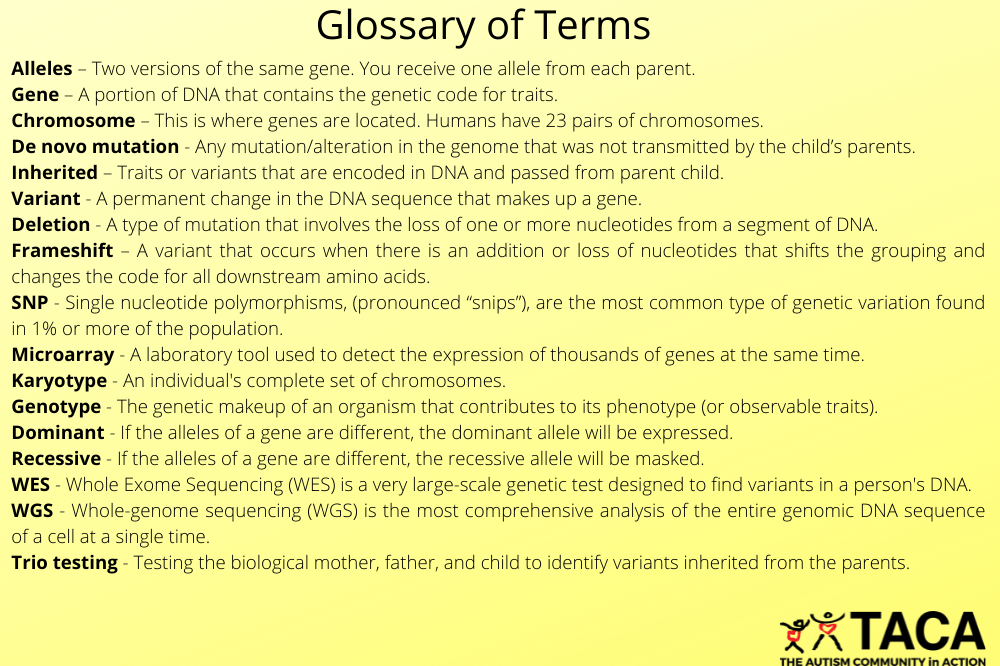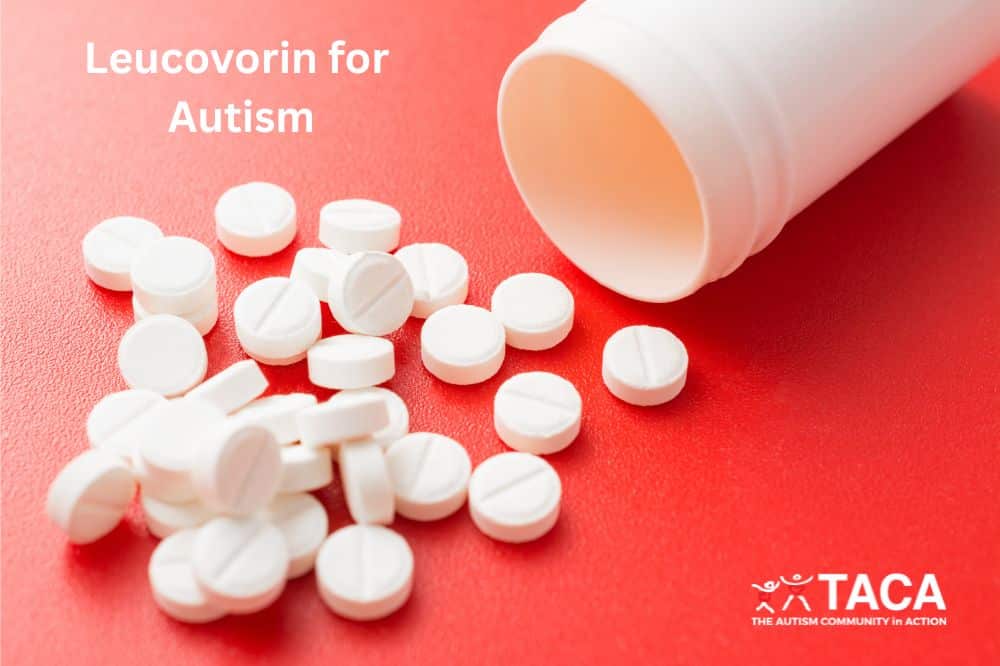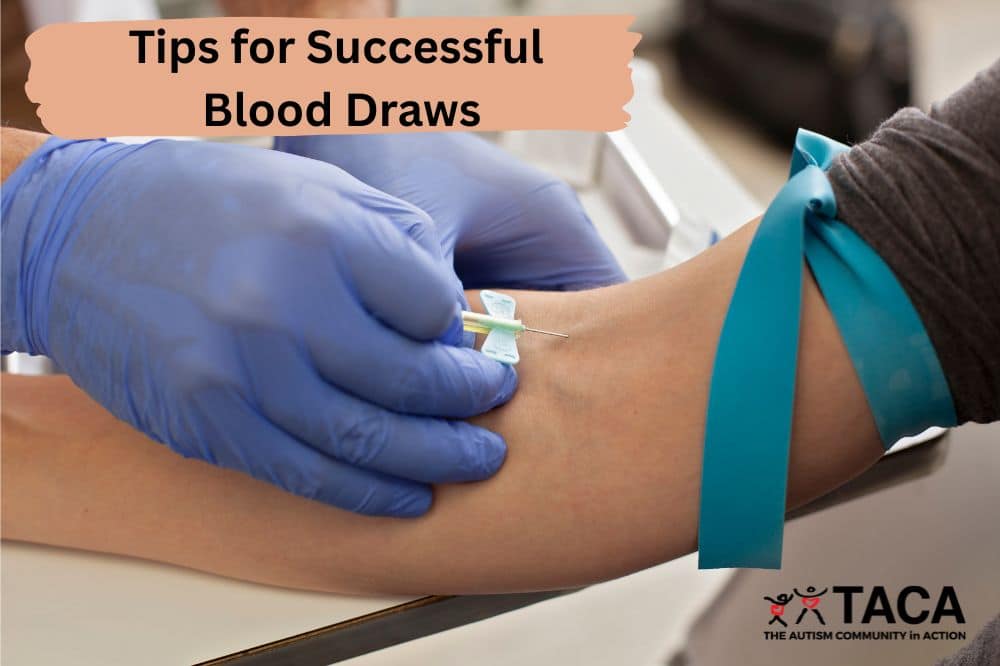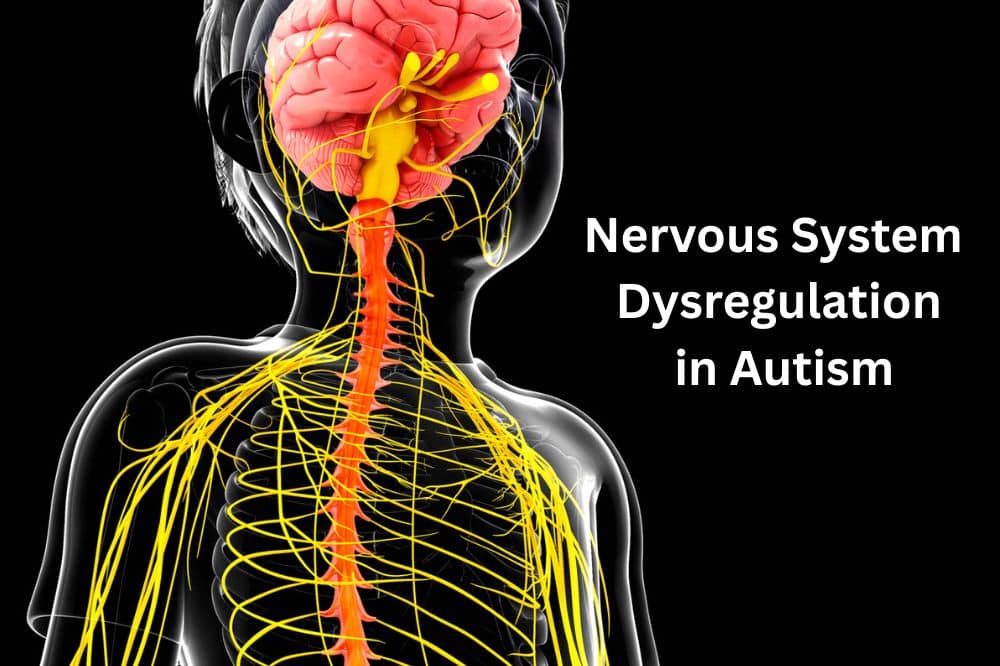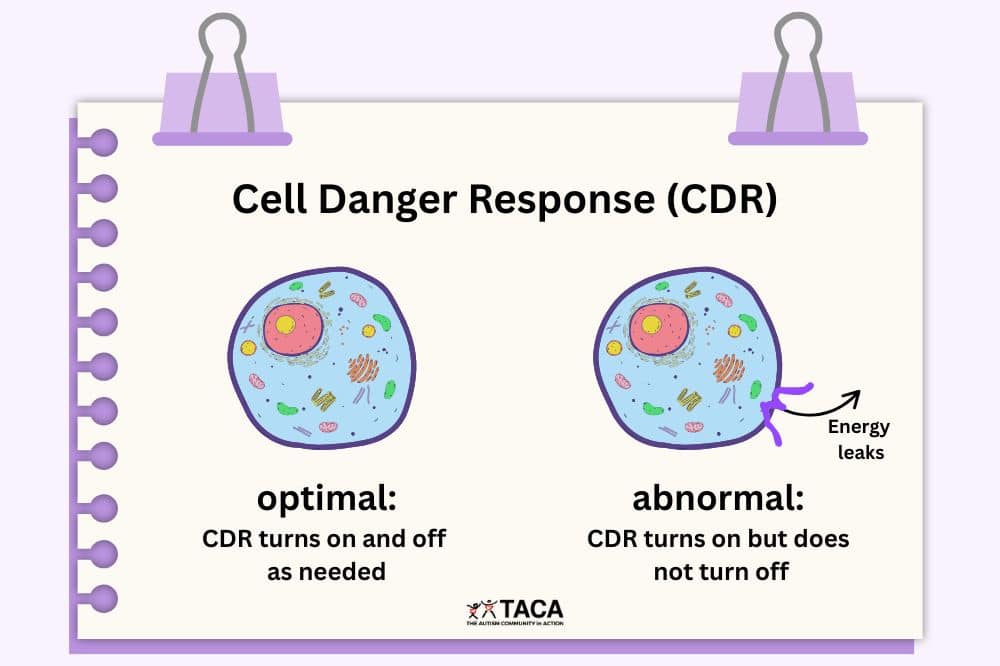Autism – More Than Genetics
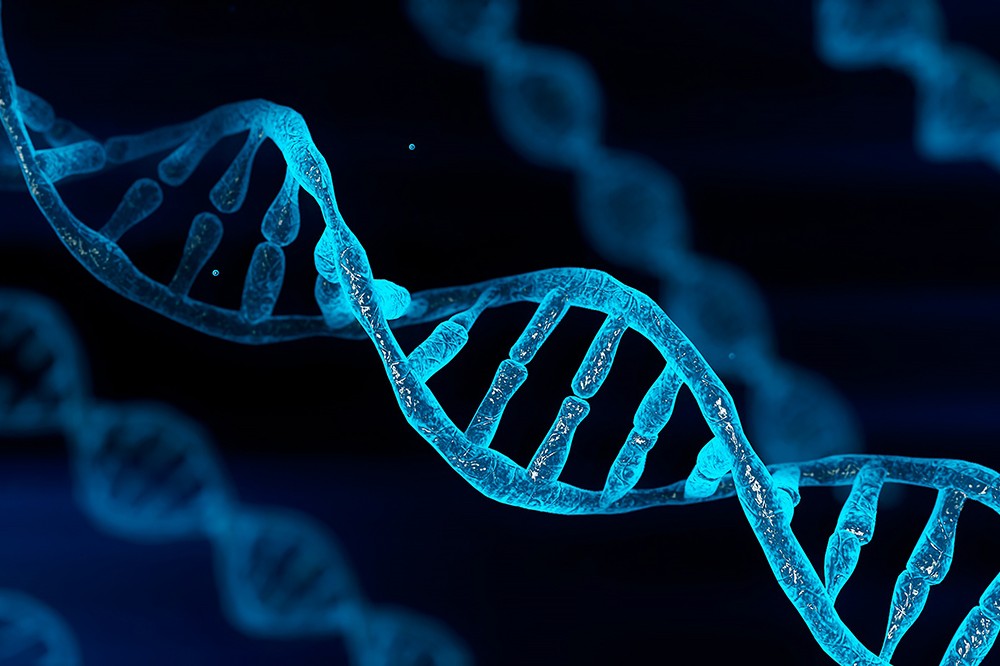
All contents of this resource were created for informational purposes only and are not intended to be a substitute for professional advice, diagnosis, or treatment. Always seek the advice of your physician, therapist, or other qualified health providers with any questions or concerns you may have.
Genetics is a complex science that is constantly evolving. Researchers continue to study the relationship between genetics and autism spectrum disorders. However, what does this mean for families and individuals with autism? When a child’s autism is genetic, what does that mean?
This article will cover:
- Autism and Genetics
- Different types of genetic testing
- What it means if your child has a genetic abnormality
Is Autism Genetic?
The studies are still being done, but the answer is likely yes and no.
Based on years of research, it is widely accepted that most kids diagnosed with autism have a genetic susceptibility triggered by environmental factors. We, therefore, refer to autism as an epigenetic disorder.
Epigenetic means that the environment influences the way the body’s genes work without changing the DNA.
Less than 1% of non-syndromic cases of autism stem from mutations in any single gene.
In 2016, SPARK launched an initiative including 69,000 participants to locate genes responsible for autism, and in all their research, they have only linked genes to autism in about 10% of cases.
In this 2022 study, over 22,000 genomes were analyzed. The result showed that 14% of children with autism had one of 134 ASD-associated DNA genes. That means that 86% of children diagnosed with autism did not have a change in their DNA that caused their autism.
The likelihood that toxins in the environment are changing the way genes express sheds some light on what may be happening in our children. Interestingly, the mitochondria (the powerhouse of the cell) are very vulnerable to environmental factors. Then, we combine that with the fact that studies show the mitochondria are functioning abnormally in autism. This information should give us pause. But it also tells us that autism is treatable.

Should My Child get Genetic Testing?
Yes. Genetic testing is recommended for all kids diagnosed with autism. In addition, the genetics field is a rapidly changing science. Therefore, if current testing does not reveal any abnormalities, it is advised to return for testing every five years.
If testing reveals an abnormality, it is not guaranteed that your child will develop gene-related symptoms. It simply means that there is a higher percentage of people with that gene abnormality and a specific set of symptoms, than without that gene and the symptoms.
Types of Genetic Testing
When you see a geneticist, they will test for gene abnormalities. Testing for single nucleotides polymorphisms (or “snips”) is different and usually not done with a geneticist. We will discuss both below. However, first we will cover how genes and polymorphisms are passed from parent to child.
Genes and SNPs (Single nucleotide polymorphisms) are inherited from a child’s biological parents.
- Everyone gets one allele from each parent.
- These alleles can be either (+) or (-).
- If the alleles are both (-), then you are negative for the gene or polymorphism.
- However, if you have one (+) allele and one (-) allele, then you are heterozygous for that gene or polymorphism.
- Finally, if both alleles are (+), then you are homozygous for that gene or polymorphism.
- For example, a child that is MTHFR c667t +/- is heterozygous for that SNP.
Genetic Testing to Check for Mutations/Deletions/Abnormalities
Genetic testing may be beneficial because it takes a more in-depth look at the genetic abnormalities and may give insight into how to treat your child’s medical and behavioral issues.
A geneticist takes a full family history and runs testing to look for mutations or variants in your child’s DNA. Typically, the geneticist will run a microarray and karyotype to look for common genetic abnormalities found in autism. These include but are not limited to:
- Fragile X
- Rett Syndrome
- Tuberous Sclerosis
- Phelan-McDermid syndrome
Every case is different. However, even if the microarray and karyotype come back negative, genetics may still be involved. Your doctor may order a Whole Exome Sequencing (WES) or Whole Genome Sequencing (WGS), which are newer technologies that can analyze large amounts of DNA. Due to the expense, insurance authorization should be obtained before running this testing. However, there may be other options if your insurance will not pay. Probably Genetic is a nonprofit that pays for WES testing if your child meets certain criteria.
Genetic SNP Testing
Single nucleotide polymorphisms (SNPs) are the most common type of genetic variation in people. They are much more prevalent in the general population than gene mutations, deletions, or abnormalities. In fact, in order to qualify to be a SNP, the variation must occur in at least 1% or more of the population. The very well-known “MTHFR” is an example of a single nucleotide polymorphism (SNP). According to the 1000 Genomes Project, approximately 25% of the global population are carriers of MTHFR c677t and MTHFR a1298c.
Many parents ask about testing for single nucleotide polymorphisms (SNPs) through Ancestry, 23andme, or another website that extracts raw data information. That data is uploaded into an app or website such as Livewello, Stategene, Promethease, or another website. It reads the raw data to determine the child’s genotype.
In a June 2022 meta-analysis, twelve SNPs were found to be significant in autism including CNTNAP2, MTHFR, OXTR, SLC25A12, and VDR. However, it is important to realize that none of these SNPs can diagnose autism or any other disorder. Rather, they can help pinpoint susceptibility to a wide variety of symptoms.
Likewise, it is noteworthy that treating autism medically should be based on symptoms, lab work, and clinical observation. Autism should not be treated based solely on SNPs. There are 4-5 million SNPs in the human genome, and they all work synergistically. However, if your child is homozygous for a SNP, the enzyme is likely not working at maximum capacity. Therefore, it is wise to run lab work to see if these specific processes need support.
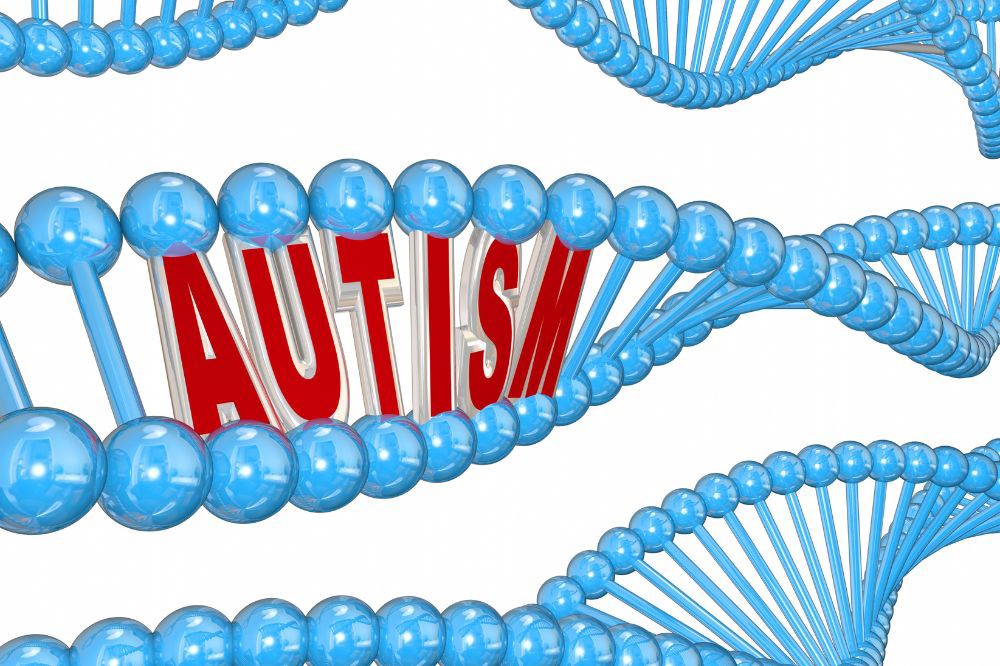
Is Genetic Autism Treatable?
If your child has a genetic disorder that is causing their autistic symptoms, their autism is very likely still treatable! This is because genetic disorders are associated with metabolic abnormalities. This means that there are abnormal chemical reactions in the body. If you can treat the metabolic problem, your child can improve. In spite of the fact that you cannot change a genetic variation, you may be able to medically support the biological issue. After you meet with the geneticist, please seek out a functional medicine doctor who can help you treat the underlying metabolic medical issues.
Mitochondrial Dysfunction
A significant number of studies show that most kids with autism have mitochondrial dysfunction. Treatment of this issue with a mitochondrial cocktail can bring significant progress. Numerous genetic disorders involve treatable mitochondrial disorders such as:
- Rett Syndrome
- Down Syndrome
- PTEN mutations
- 15q11q13 duplication
- Angelman Syndrome
- Septo Optic Dysplasia
Redox Abnormalities
Many genetic disorders involve abnormal oxidation-reduction (redox). In other words, there is not enough glutathione (or glutathione recycling) to prevent oxidation and facilitate proper detoxification. These are also involved in autism and are very treatable with supplementation and dietary changes. B12, folate, B6, and glutathione are all used to treat redox abnormalities. Examples of genetic disorders that have redox abnormalities are:
- Rett Syndrome
- Down Syndrome
- Phenylketonuria (PKU)
Folate Abnormalities
Lastly, there are genetic disorders that involve folate abnormalities that are also very common in autism. Thankfully, this is treatable with prescription strength nutritional folinic acid supplementation. Examples of genetic disorders that involve folate abnormalities are:
- Rett Syndrome
- Down Syndrome
Variants of Unknown Significance
Sometimes testing detects genetic variants. However, it is unknown what they could mean, if anything, to the individual. These are called variants of unknown significance or VUS. These are not cause for concern because it is unknown how, or if, they will affect your child.
Conclusion
Opting for genetic testing for your child is a wise choice, but finding a genetic variant is uncommon. However, if your child does have a genetic abnormality, please don’t lose hope! Many medical treatment options can help your child gain improved health, cognition, and behavior.
